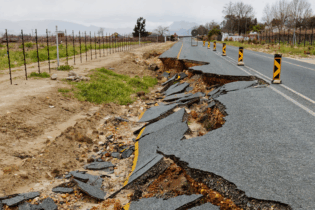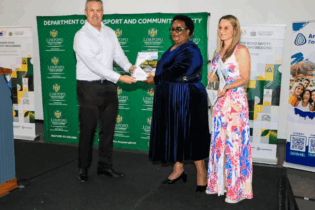RFA’s response to the Budget Speech
Comment by Gavin Kelly, technical and operations manager at the Road Freight Association Following the National Budget Speech last week, the Road Freight Association (RFA) says it welcomes the fact that no new taxes were introduced and no increases in corporate tax were announced. However, for an industry that has to grapple with a 58 c/litre diesel hike and the additional increase of 23 c/litre in the fuel levy that was announced in the Budget Speech, these costs will add to the already heavy burden being placed on road freight operators. And one has to wonder if these monies will ever see their way back into our roads. The road freight industry remains one of the highest taxed industries in South Africa with ever-increasing road user charges, cross-border taxes, toll fees, vehicle licensing fees, inspection fees and other legal requirements. The RFA remains concerned about the ability of the smaller truck operators in particular to pay all the taxes. It is these operators who will be most severely impacted – the very sector government aims to support. Carbon Tax: an additional burden The Carbon Tax burden will also fall largely on the road freight industry, which has low margins and keeps the wheels of the economy turning. Set for implementation from 1 January 2015, this new Tax will reduce our country’s competitiveness even further. While the RFA supports all efforts to reduce greenhouse gas emissions and climate change, the association strongly believes that South Africa cannot afford another tax. More so, although much research has been done, there are no viable alternatives available for our industry and we have yet to hear of approved carbon project offsets from Treasury that can reduce the tax burden of operators. It is also of grave concern that the Carbon Tax will not be ring-fenced by government for use in projects to reduce fuel consumption and carbon emissions, or for green efficiency projects. As long as this is the case, the Carbon Tax will be viewed as just another initiative to generate revenue.Already faced with numerous rising costs, the proposed Carbon Tax will have a serious impact on the cost of logistics, rendering road transport uneconomical. Over 80% of freight is currently moved by road. Transport costs are already unacceptably high – 14.6% of GDP.
The RFA will continue to lobby against the tax, especially as the freight industry has no other options available and the availability of supply of clean fuels and biofuels is still an issue. Investment in infrastructure praised The RFA welcomes the increased investment in infrastructure – functional roads, harbours and ports are vital for South Africa’s competitiveness as a nation. The allocation to the Department of Transport of R42.3 billion for 2013/14 and R53.4 billion for 2015/16 is an important step towards developing much-needed infrastructure. Transport is a major enabler of economic and socio-economic activity. The RFA intends monitoring provincial government’s spending more closely on the secondary road network, as RFA members often find the network between smaller towns in dire need of upgrades. It hopes that infrastructure spending actually takes place to make the cost of transport lower – as good roads should do. This will help not only the transport industry but the economy overall perform better to create the value and the jobs the country so desperately needs. While the budget deficit is also of concern – at an estimated 5.7% – when compared on a like-for-like basis, the RFA also notes that this may make for ratings downgrades for South Africa, which again could affect the value of the currency and make for higher truck and fuel prices. The RFA continues to play a vital role in the road freight industry. As the voice of the road freight industry, it continues to speak out, to comment on the impact of proposed legislation and raise issues that affect operators so that the industry views are heard, taken seriously and addressed.




